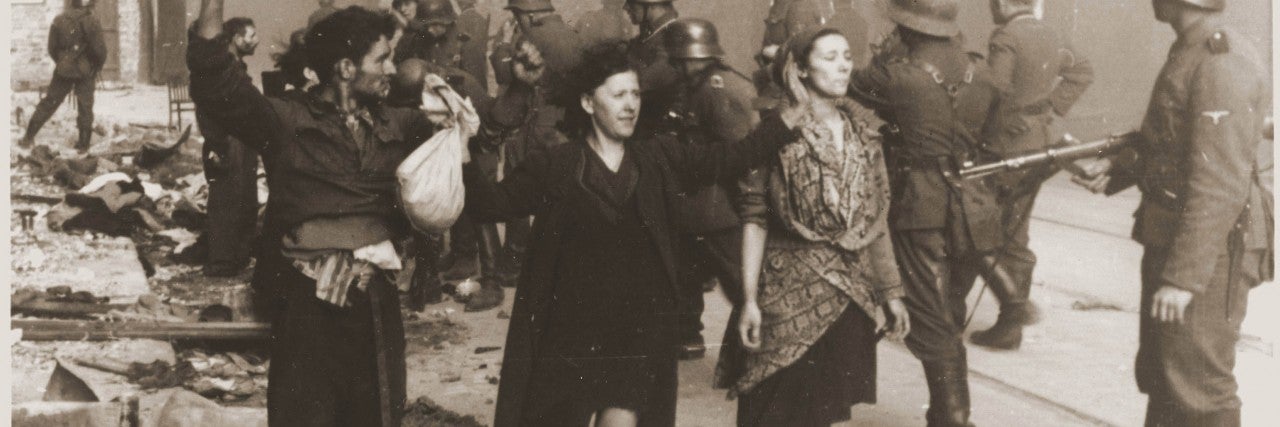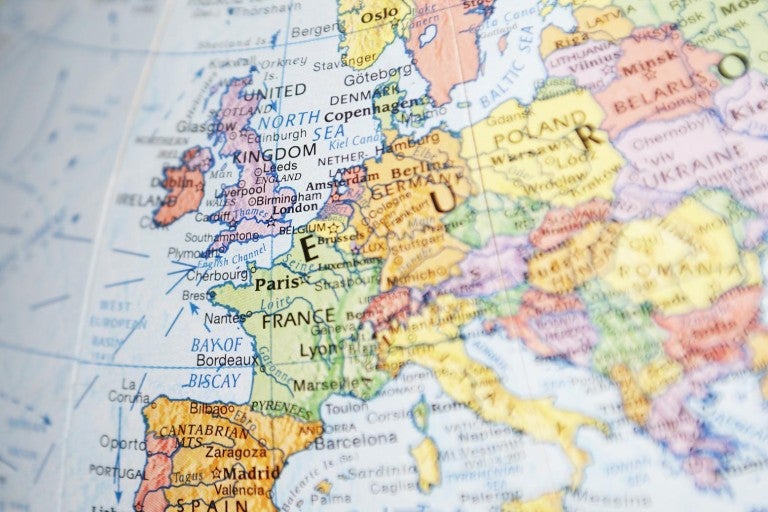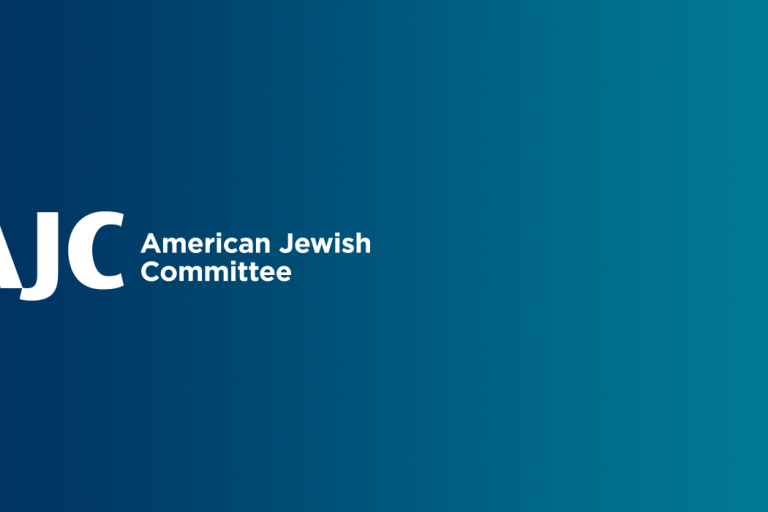April 19, 2019
The anniversary of the Warsaw ghetto uprising on April 19 commemorates the first and largest armed Jewish revolt against the German army during the Holocaust.
But while history books talk about the brave resistance fighters who took up guns, few mention the brave scholars and journalists who fought with pen and paper first.
Who Will Write Our History, a new film based on the book of the same name, chronicles the real-life story of Polish Jewish historian Emanuel Ringelblum and that secret coalition of scribes who buried three time capsules about life in the ghetto to make sure the world would one day know their stories.
“I think Ringelblum and the others are great Jewish heroes and giants of spiritual resistance,” said filmmaker Roberta Grossman. “They should be as well-known as the Warsaw ghetto fighters because they were willing to risk their lives to speak to the future. And they succeeded.”
Earlier this year, AJC's Jacob Blaustein Institute for the Advancement of Human Rights introduced the film to the United Nations’ Holocaust Outreach Program during the program’s annual week-long commemoration of Holocaust Remembrance Day. AJC regional offices also have brought the movie to Jewish film festivals across the country.
“We really felt that Roberta did a huge service by writing and showing this incredible history as a film,” said Felice Gaer, director of JBI. It fulfilled the educational purpose of the annual UN program by highlighting the atrocities Jews faced for simply being Jewish and how the German propaganda machine intended to cover it up, she said.
“The footage is quite extraordinary and reminds each of us of what ordinary life was like for Jews confined to the ghetto,” she said. “It also reveals starkly what a prison camp it truly was. We see how the Nazis starved, stole, and suppressed the Jews utterly. If it weren’t for the Ringelblum archive, we would know nothing about it except what the Nazis said and showed others about it.”
A Warsaw Presence
Written, produced, and directed by Grossman and executive producer Nancy Spielberg, Who Will Write Our History intersperses the writings of the coalition, known by code name Oyneg Shabes, with survivor interviews, German propaganda footage, and reenactments to introduce viewers to the activists of the Warsaw ghetto. Those who did not die of starvation or typhus were either shipped off to concentration camps, escaped, or died in the uprising.
The film makes it clear the coalition knew they could not defeat the Nazis with force, but only through resistance. When they saw Nazi film crews creating their own narrative, they knew they had to defeat Nazi lies with truth.
According to author Sam Kassow in an interview on AJC Live, only three members of Oyneg Shabes survived the Holocaust. Only one knew where the capsules were buried. Two of the three capsules were located in 1946, containing artifacts and 35,000 pages of documentation.
“This brought the Holocaust to a very personal level,” Gaer said. “The Warsaw ghetto wasn’t just a bunch of people holed up in a building. It was a lively culture and real Jewish life was going on, despite everything. It makes you appreciate just how vicious the Nazi occupation was. You see the humanity of the victims ... and you see the brutality of the perpetrators. It was a hopeless cause and they knew their futures were dim, but they persisted in telling their story and preserving it and that’s an important message.”
Recording the facts was punishable by arrest and death, so the actions of Oyneg Shabas were indeed a crucial act of resistance to Nazi persecution, said Gaer.
Grossman said she focused on the quiet heroism, selflessness, and sharing of resources among Jewish neighbors that led up to April 19, 1943, the start of the first and largest Jewish rebellion in a city in Nazi-occupied Europe.
On that date, German forces entered the ghetto to round up the remaining Jews for deportation to the concentration camps. Fighters and ghetto residents surprised the Nazis by barricading themselves in bunkers and hideouts and employing an arsenal of smuggled weapons. The Nazis responded by setting the ghetto ablaze block by block, turning it into a firetrap. Many Jews burned or suffocated. Still, the uprising became an example for Jews in other ghettos and camps.
But resistance doesn’t have to be an armed revolt, Grossman said.
“There are all kinds of resistance,” she said. “You can resist by picking up a Molotov cocktail or you can resist by writing and speaking the truth. The Nazis were bent on destroying [Jewish] culture and cementing their history and legacy as vile and vanquished people. To remain human in the ghetto, amid tremendous conditions of hunger, disease, and violence, was a form of resistance as well. Schools, music, soup kitchens, literary evenings. The fact of the matter is that those activities were part and parcel of what ended up being part of the uprising.”
Theaters in 22 states and a dozen countries will screen Who Will Write Our History around Yom Hashoah, Holocaust Remembrance Day, which this year falls on May 1.


